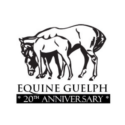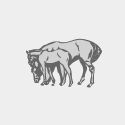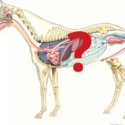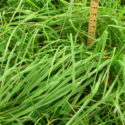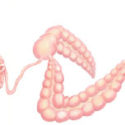Nutrition
20th Anniversary Special Feature with Alumni Monica Laane-Fralick
20th Anniversary Alumni, Monica Laane-Fralick has a real appreciation for welfare-based management strategies thanks to Equine Guelph’s 12-week online courses. Of great interest was learning about the myths in some traditional stable management practices and dispelling them with evidence-based sources such as those provided by Equine Guelph courses. Anthropomorphism (attribution of human characteristics/behaviours to animals) can create misunderstandings…
20th Anniversary Special Feature with Alumni Robin Vanheeswyk
20th Anniversary Alumni, Robin Vanheeswyk has a growing interest in equine nutrition thanks to Equine Guelph’s online 12-week online courses. Of great interest was learning about the issues in equine nutrition pertaining to overfeeding horses which in turn can cause health problems, behavioural issues and also hit the rider in the pocketbook.
The Impact of Antibiotics on the Equine Gut
The thinking on how we use antibiotics is changing in the world of medicine especially as we learn more about their impact on the inhabitants of the gut. Ontario Veterinary College researcher, Dr. Diego Gomez, took part in a collaborative study with researchers across North America to study the effects of intravenous antimicrobials on the…
Introduction to Forage Latest Addition to Online Courses for Horse People
With forage recommended as approximately 80% of your equine’s diet, a caretaker with straight A’s in selection and management of hay and pasture is a horse’s best friend. Join expert in the field, Dr. Paul Sharpe, for the inaugural offering of the Introduction to Forage online course this Mar 21 – Apr 1, 2022. Whether…
Equine Robo-Gut Helps OVC Researchers Study Gastrointestinal Diseases In Horses
Originally published by Ontario Veterinary College – June 14, 2021 A University of Guelph researcher is advancing knowledge into prevention and early detection of gastrointestinal diseases in horses using a mechanical replica of a horse’s GI system to mimic equine digestion and disease. Dr. Luis Arroyo, professor in the Department of Clinical Studies at the…
Free Equine Webinar Series: Taking Science to the Stable
Starts June 16 with Broodmare Management and Nutrition with Don Kapper Equine Guelph is pleased to announce that our partnership program, Taking Science to the Stable, FREE summer webinar series begins June 16 and will run every two weeks until August 18. Hosted by Open Learning and Educational Support at the University of Guelph, this…
The Healthy Horse: Understanding the Role of Equine Digestion & Nutrition Webinar
Take a journey through the horse’s digestive system in a free webinar April 14, 7pm-8:15pm EST. Equine Guelph’s life size model of the digestive system will be featured so participants can identify what the entire tract looks like, how it works, and what this means for feeding horses. This interactive webinar will help viewers understand strategies and…


